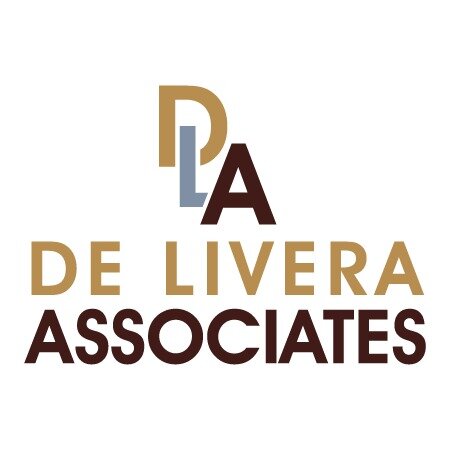Best Debt & Collection Lawyers in Sri Lanka
Share your needs with us, get contacted by law firms.
Free. Takes 2 min.
Or refine your search by selecting a city:
List of the best lawyers in Sri Lanka
About Debt & Collection Law in Sri Lanka
Debt & Collection law in Sri Lanka involves the legal processes and regulations that govern the collection of debts between parties. It includes mechanisms for recovering debts through negotiation, mediation, and, if necessary, court actions. The legal framework ensures that the process of debt recovery is fair and just for both creditors and debtors. The laws are designed to protect the interests of both parties, ensuring that debt collection practices are not abusive or unfair.
Why You May Need a Lawyer
There are several situations where legal assistance in debt and collection might be necessary:
- When you are a creditor seeking to recover a debt and need guidance on legal processes.
- If you are a debtor receiving unjust or threatening collection practices.
- To negotiate settlements or restructuring of debt agreements amicably.
- When involved in complex debt cases, such as those involving bankruptcy or insolvency.
- To understand legal rights and obligations under a debt contract.
- If there is a dispute regarding the amount owed or the repayment terms.
- In situations where legal documentation and representation are necessary in court.
Local Laws Overview
Sri Lankan debt and collection laws provide a comprehensive framework aimed at ensuring ethical collection practices. Key aspects include:
- Debt Recovery Act No. 2 of 1990: Provides principal procedures for recovering unpaid debts.
- Prevention of Frauds Ordinance: Addresses fraudulent actions in debt agreements.
- Insolvency Ordinance: Governs bankruptcy and insolvency proceedings, detailing how assets are handled.
- Credit Act: Regulates credit transactions and seeks to protect consumers from unfair lending practices.
Frequently Asked Questions
What should I do if I cannot repay a debt?
It is advisable to communicate with your creditor to negotiate a payment plan. Legal advice may assist in restructuring debt or seeking protection under insolvency law if necessary.
Can creditors take legal action for any unpaid debt?
Yes, creditors can initiate legal proceedings to recover debts following due process under the Debt Recovery Act or through civil lawsuits.
What are my rights if a collection agency contacts me?
You have the right to be treated fairly and not be subjected to harassment. Collection agencies must comply with prescribed ethical guidelines.
How long does a creditor have to collect a debt?
Generally, the limitation period for debt recovery is six years from the date on which the debt became due and payable, but this can vary based on specific circumstances.
Can a debtor be imprisoned for not paying a debt?
No, imprisonment for debt is not allowed in Sri Lanka. Enforcement is typically done through civil means.
What happens if I receive a court notice for a debt?
Seek legal advice immediately to understand your options, comply with court requirements, and present any defenses you might have.
Is mediation available for debt disputes?
Yes, mediation can be an effective way to resolve debt-related disputes amicably and avoid costly legal proceedings.
Can salary be garnished to recover a debt?
The court may order a wage garnishment, but this is subject to certain protections and limitations under the law.
Are there protections against unfair lending practices?
Yes, the Credit Act provides protections against predatory lending and unfair credit terms, requiring transparency in all lending practices.
How can I contest an incorrect debt amount?
If you believe a debt amount is incorrect, you should contact the creditor to dispute the amount and provide documentation to support your claim.
Additional Resources
Several resources can assist individuals dealing with debt and collection issues:
- Ministry of Justice Sri Lanka: Offers information on legal rights and processes.
- Legal Aid Commission of Sri Lanka: Provides free legal assistance for those unable to afford it.
- The Central Bank of Sri Lanka: Can provide information on credit and financial consumer rights.
Next Steps
If you require legal assistance with debt and collection matters, consider the following steps:
- Consult with a qualified lawyer who specializes in debt recovery and collection law in Sri Lanka.
- Gather all relevant documentation related to your debt, including contracts, payment records, and communications with creditors.
- Prepare a list of questions or issues you need guidance on to make the most of your legal consultation.
- Explore alternative dispute resolution options such as mediation if applicable.
Taking these steps can help you navigate the legal landscape of debt and collections more effectively and ensure your rights are protected.
Lawzana helps you find the best lawyers and law firms in Sri Lanka through a curated and pre-screened list of qualified legal professionals. Our platform offers rankings and detailed profiles of attorneys and law firms, allowing you to compare based on practice areas, including Debt & Collection, experience, and client feedback.
Each profile includes a description of the firm's areas of practice, client reviews, team members and partners, year of establishment, spoken languages, office locations, contact information, social media presence, and any published articles or resources. Most firms on our platform speak English and are experienced in both local and international legal matters.
Get a quote from top-rated law firms in Sri Lanka — quickly, securely, and without unnecessary hassle.
Disclaimer:
The information provided on this page is for general informational purposes only and does not constitute legal advice. While we strive to ensure the accuracy and relevance of the content, legal information may change over time, and interpretations of the law can vary. You should always consult with a qualified legal professional for advice specific to your situation.
We disclaim all liability for actions taken or not taken based on the content of this page. If you believe any information is incorrect or outdated, please contact us, and we will review and update it where appropriate.
Browse debt & collection law firms by city in Sri Lanka
Refine your search by selecting a city.











